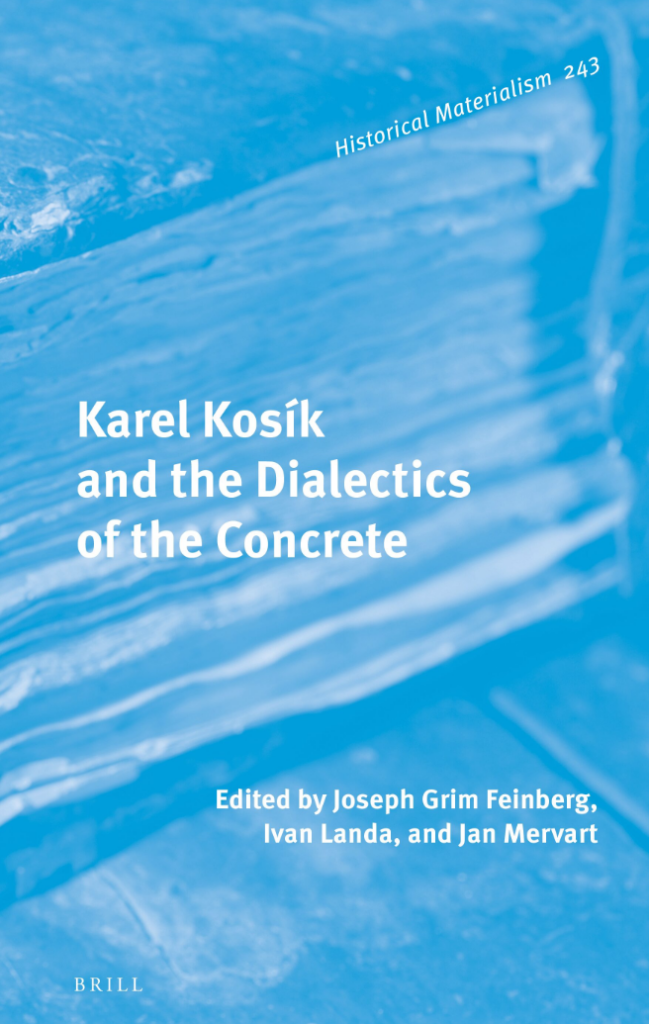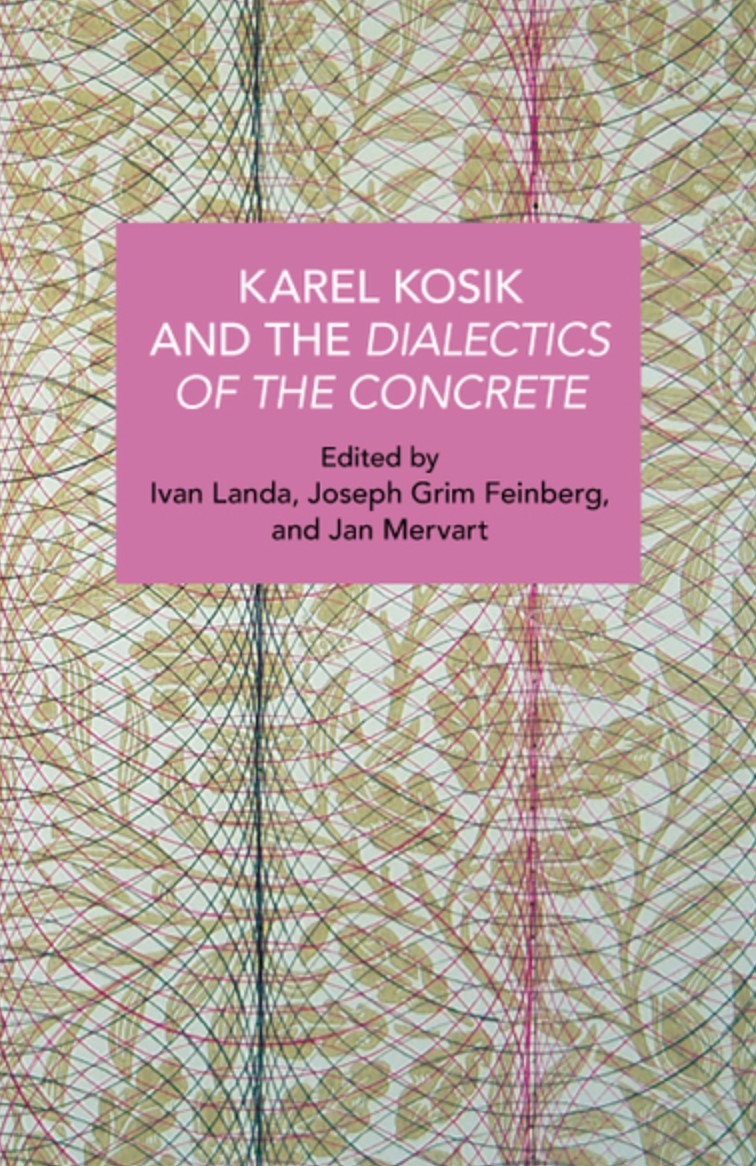Ivan Landa, Joseph Grim Feinberg, and Jan Mervart (eds)
Karel Kosík (1926–2003) was one of the most remarkable Czech Marxist philosophers of the twentieth century. His reputation as a creative thinker is owed largely to his philosophical ‘blockbuster’ Dialectics of the Concrete, first published in Czechoslovakia in 1963. In reintroducing Kosík’s philosophy to English-speaking readers, we show that Kosík’s work is important not only as a leading intellectual document of the Prague Spring, but also as an original theoretical contribution with international impact that sheds light on the meaning of labour and praxis, cognition and economic structure, and revolution and the crises of modernity.
Contributors include: Ian Angus, Siyaves Azeri, Vít Bartoš, Jan Černý, Joseph Grim Feinberg, Diana Fuentes, Gabriella Fusi, Tomáš Hermann, Tomáš Hříbek, Xiaohan Huang, Peter Hudis, Petr Kužel, Ivan Landa, Michael Löwy, Jan Mervart, Anselm K. Min, Tom Rockmore, Francesco Tava, and Xinruo Zhang.
Biographical Note
Joseph Grim Feinberg, PhD (2014), University of Chicago, is a researcher at the Institute of Philosophy of Czech Academy of Sciences. He is author of The Paradox of Authenticity (University of Wisconsin, 2018) and editor of Contradictions: A Journal for Critical Thought.
Ivan Landa, PhD (2010), Charles University, is a researcher at the Institute of Philosophy of the Czech Academy of Sciences. He has published articles and chapters on Hegel and the history of Marxism. He is a co-editor of the Collected Works of Karel Kosík (Filosofia, 2019–), planned for 7 volumes (in Czech).
Jan Mervart, PhD (2009), University of Hradec Králové, is researcher at the Institute of Philosophy of the Czech Academy of Sciences. He has published monographs and articles on the intellectual history of Czechoslovakia. He is the co-editor of Czechoslovakism (Routledge, 2021).
Readership
This volume is aimed at specialists in the intellectual history and politics of Central and Eastern Europe, as well as all scholars and students interested in critical philosophy.
Table of Contents
IAcknowledgements
Notes on Authors
Introduction
Joseph Grim Feinberg, Ivan Landa, Jan Mervart
Part 1 The Reform Years and the Origins of Dialectics of the Concrete
1 Karel Kosík as a Public Intellectual of the Reform Years
Jan Mervart
2 Karel Kosík and His ‘Radical Democrats’: The Janus Face of Dialectics of the Concrete
Moving from a Historical to a Systematic Approach to Philosophy
Tomáš Hermann
Part 2 Praxis and Labour
3 Praxis in Progress: On the Transformations of Kosík’s Thought
Francesco Tava
4 Labour and Time: Karel Kosík’s Temporal Materialism
Ivan Landa
5 Inception of Culture from the Ontology of Labour: The Original Contribution of Karel Kosík to a Marxian Theory of Culture
Ian Angus
6 ‘The Philosophy of Labour’ and Karel Kosík’s Criticism of ‘Care’
Siyaves Azeri
7 Kosík, Lukács and the Thing in Itself
Tom Rockmore
Part 3 Modernity, Nation, and Globalisation
8 The Ontological Dialectic and the Critique of Modernity: Based on the Interpretation of Kosík’s Concrete Totality
Xinruo Zhang and Xiaohan Huang
9 And the ‘Thing Itself’ Is Man: Radical Democracy and the Roots of Humanity
Joseph Grim Feinberg
10 The Dialectic of Concrete Totality in the Age of Globalisation: Karel Kosík’s Dialectics of the Concrete Fifty Years Later
Anselm K. Min
Part 4 Intellectual Encounters
11 Kosík’s Notion of ‘Positivism’
Tomáš Hříbek
12 Kosík’s Concept of ‘Concrete Totality’: A Structuralist Critique
Vít Bartoš
13 The World of the Pseudoconcrete, Ideology and the Theory of the Subject (Kosík and Althusser)
Petr Kužel
14 Karel Kosík and Martin Heidegger: From Marxism to Traditionalism
Jan Černý
Part 5 Influence and Reception
15 A Route of Critical Thought: Between Italian and Czech Intellectuals
Gabriella Fusi
16 Karel Kosík in Mexico: Adolfo Sánchez Vázquez and the Dialectics of the Concrete
Diana Fuentes
17 Karel Kosík and US Marxist Humanism
Peter Hudis
Postscript: Looking Backwards
18 Spirit of Resistance: Note for an Intellectual Biography of Karel Kosík
Michael Löwy
References
Index


